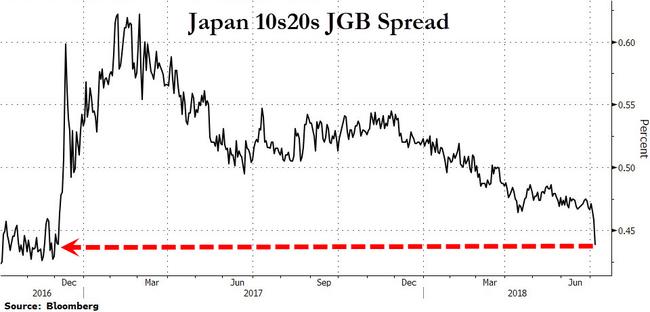Bridges Urges Thibodeau For Reduced Minutes For Knicks Key Players

Table of Contents
The Risk of Overuse Injuries
Excessive playing time in the NBA significantly increases the risk of overuse injuries. Basketball, with its demanding physicality and repetitive movements, puts players at high risk for various ailments. The Knicks, like any team, are vulnerable to these risks. Key keywords: overuse injuries, NBA injuries, player fatigue, Knicks injury report, minutes restriction.
- Common Overuse Injuries: Knee injuries (ACL tears, meniscus damage), hamstring strains, ankle sprains, and tendinitis are prevalent among basketball players who consistently log heavy minutes. These injuries not only sideline players for extended periods but can also have long-term consequences, impacting their careers.
- Statistics on Injury Risk: Numerous studies correlate increased playing time with a higher likelihood of injury in the NBA. While specific Knicks statistics might require access to private team data, publicly available NBA-wide data strongly supports this link. [Insert relevant statistic or study if available, otherwise remove this bullet point].
- Knicks Players at Risk: [Mention specific Knicks players who have a history of injuries or who are currently playing heavy minutes. Support with examples, but avoid making definitive medical claims]. Reducing their minutes could mitigate future injury risks.
Maintaining Peak Performance Through Strategic Rest
Consistent high-minute play inevitably leads to player fatigue, impacting performance and increasing vulnerability to injury. Strategic rest and recovery are essential for sustaining peak performance throughout the grueling NBA season. Key keywords: player performance, peak performance, rest and recovery, game strategy, minutes management, Thibodeau strategy
- Physiological Effects of Fatigue: Fatigue diminishes reaction time, reduces accuracy, and weakens explosiveness – all vital aspects of basketball performance. The cumulative effect of fatigue can lead to poor decision-making on the court and increase susceptibility to injuries.
- Benefits of Rest and Rotation: A well-managed rotation system allows for strategic rest, fresher legs for key players during crucial moments, and opportunities for bench players to develop and contribute. This fosters improved team chemistry and overall performance.
- Successful Examples: Teams like the [mention a team known for good player management] have demonstrated the benefits of effective minutes management, showcasing how prioritizing player health translates into sustainable success.
The Impact on the Knicks' Long-Term Success
Overworking key players jeopardizes not only the current season but also the Knicks' future. Preventing injuries and maintaining peak performance are paramount for a successful playoff run and sustained competitiveness over multiple seasons. Key keywords: Knicks playoffs, long-term success, sustainable success, team strategy, roster management
- Injuries Derailing Playoff Runs: A single significant injury to a key player can derail a team's playoff hopes, highlighting the fragility of relying on a small core of overplayed athletes.
- Player Longevity: Protecting players from excessive wear and tear extends their careers and maximizes their value to the team. This is essential for building a consistently strong team over the long term.
- Developing Bench Players: Giving bench players more playing time allows for development and improves team depth. This makes the team more resilient against injuries and ensures a competitive edge in crucial moments.
Counterarguments & Rebuttals
Some might argue that Thibodeau's high-minute philosophy is a necessary component of his winning strategy. However, this short-term approach risks compromising the long-term health and success of the team. Key keywords: Thibodeau coaching style, high-minute philosophy, winning strategy, criticism of Thibodeau, response to critics
- Arguments for High-Minute Strategies: Proponents might argue that high minutes build toughness, create winning habits, and ensure a consistent competitive edge.
- Counterarguments: While these points are valid, they need to be balanced against the risks of overuse injuries and the importance of sustaining peak performance throughout the season. Investing in the long-term health of the players is an investment in the long-term success of the franchise.
Conclusion
Bridges' call for reduced minutes highlights a critical issue for the Knicks: the need to balance winning now with building a sustainable future. The risks of overuse injuries, the importance of maintaining peak player performance, and the long-term benefits of strategic minutes management all point toward the necessity of a shift in approach. Thibodeau's decision regarding player minutes will significantly impact the Knicks' success, both in the short and long term. Do you agree with Bridges' call for reduced minutes? Share your thoughts in the comments below!

Featured Posts
-
 The Impact Of Japans Steepening Bond Yield Curve On Investors And The Economy
May 17, 2025
The Impact Of Japans Steepening Bond Yield Curve On Investors And The Economy
May 17, 2025 -
 Lynass Global Impact Reshaping The Heavy Rare Earths Market
May 17, 2025
Lynass Global Impact Reshaping The Heavy Rare Earths Market
May 17, 2025 -
 Josh Alexander Aew Don Callis And More 97 1 Double Q Interview
May 17, 2025
Josh Alexander Aew Don Callis And More 97 1 Double Q Interview
May 17, 2025 -
 Key Takeaways From Cassie Venturas Testimony In The Diddy Case
May 17, 2025
Key Takeaways From Cassie Venturas Testimony In The Diddy Case
May 17, 2025 -
 Bof As View Why Elevated Stock Market Valuations Are Not A Red Flag For Investors
May 17, 2025
Bof As View Why Elevated Stock Market Valuations Are Not A Red Flag For Investors
May 17, 2025
Latest Posts
-
 How Trumps Student Loan Changes Affect Black Communities
May 17, 2025
How Trumps Student Loan Changes Affect Black Communities
May 17, 2025 -
 Stem Scholarships For Local Students Eligibility Application Process And Deadlines
May 17, 2025
Stem Scholarships For Local Students Eligibility Application Process And Deadlines
May 17, 2025 -
 Local Students Awarded Stem Scholarships Funding Opportunities And Applications
May 17, 2025
Local Students Awarded Stem Scholarships Funding Opportunities And Applications
May 17, 2025 -
 The Trump Administration And Black Student Loan Debt
May 17, 2025
The Trump Administration And Black Student Loan Debt
May 17, 2025 -
 Stem Scholarships Awarded To Local Students A Comprehensive Guide
May 17, 2025
Stem Scholarships Awarded To Local Students A Comprehensive Guide
May 17, 2025
